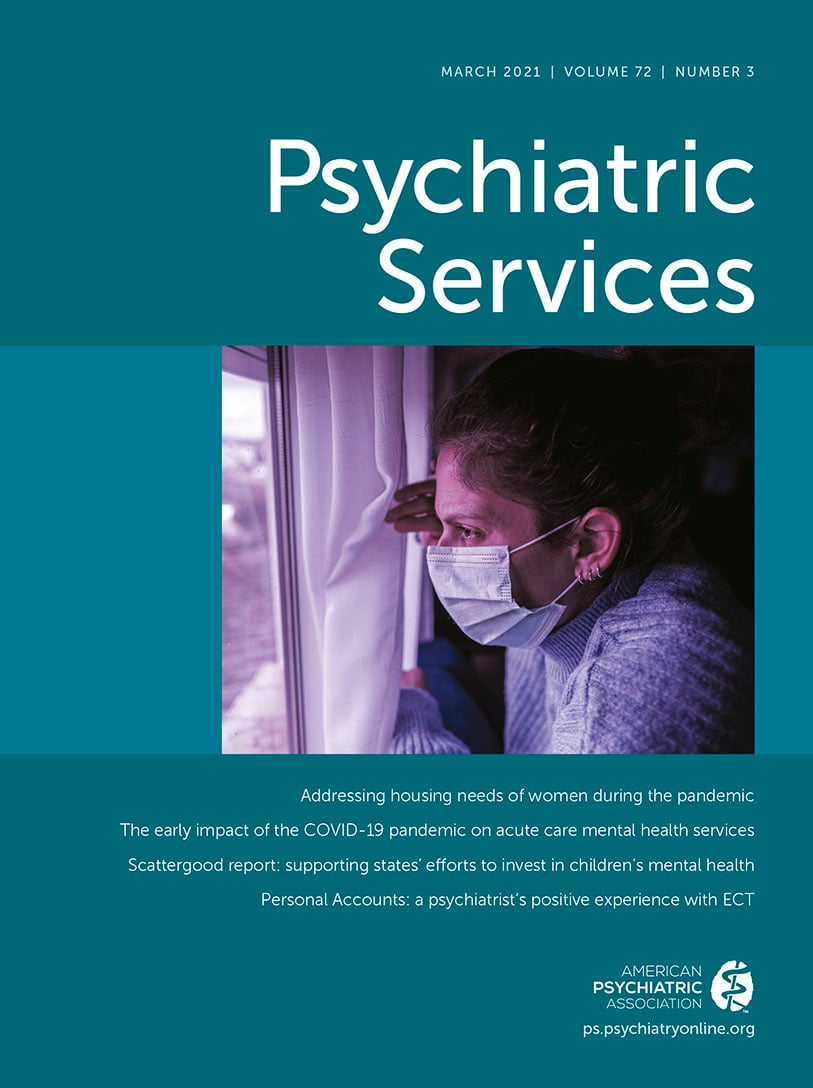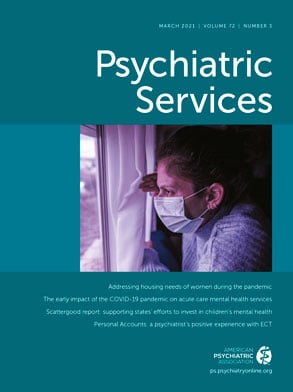In this issue, Reist et al. (
1) document the gap between evidence-based recommendations and the care delivered in coordinated specialty care (CSC). CSC is a recovery-focused, team-based approach for treating young people who have first-episode psychosis (FEP). CSC has been associated with improved outcomes, including better quality of life, higher participation in work and school, better treatment engagement, fewer hospitalizations, and reduction in symptoms. CSC was first described in two groundbreaking 2008 studies funded by the National Institute of Mental Health.
Prior to those studies, schizophrenia was often described with a grim prognosis of chronic, progressive illness. CSC challenges that pessimistic description of the illness, instead providing an evidence-based treatment that offers hope for patients, their families, and clinicians.
Challenges with health care delivery have prevented widespread use of CSC, which is emblematic of structural problems in the U.S. public health system. The Reist study lays bare the gap between the evidence-based components of CSC and the care that people receive; policy advancements are needed before the full potential of this recovery-focused model can be realized. While commitment to policy change remains the long-term priority for sustained improvement in population health, the study outlines three immediate opportunities to bolster care in this vulnerable population: use of psychotherapy, utilization of integrated care, and ongoing monitoring of substance abuse and tobacco use. Reist and colleagues urge FEP providers to evaluate and improve their practices in the aforementioned areas immediately.
Reist et al. report that more than 70% of patients received no psychotherapy despite strong evidence of its significant benefits. Similarly, over 20% did not receive integrated care, an evidence-based model that improves outcomes. Individuals who received neither psychotherapy nor integrated care had significantly higher utilization of emergency services and hospital visits (for either behavioral or nonbehavioral reasons) during the follow-up period.
Another concern is that substance use was not monitored in over 80% of the sample. Substance abuse, including smoking, is high among young adults with FEP and can worsen outcomes. For example, tobacco use can alter metabolism of antipsychotic medications, leading to lower plasma concentrations and potential for relapse. Cannabis use may contribute to increased rates of violence by young adults with early psychosis, possibly through increased paranoia or other positive symptoms. Understandably, unmonitored substance use in this sample was associated with significantly higher utilization of emergency and hospital services. These findings speak to the importance of meeting the treatment benchmarks of evidence-based models such as CSC in order to improve outcomes for young adults with FEP.
In the Reist et al. study, nearly half of individuals did not refill an antipsychotic medication prescription at least once during the study period, and over one-third received no metabolic screening within 12 months of starting second-generation antipsychotic medications. For these outcomes, individuals who did not receive the recommended care had lower rates of emergency service and hospital utilization; however, this analysis was limited to the study’s follow-up period. Clinical experiences working with young adults with FEP suggest that while lack of refills and metabolic syndrome screening could be associated with reduced service utilization in the short term, higher rates of general medical and psychiatric complications are likely to occur.
The Reist et al. study highlights that more work is needed to improve care delivery for young adults with FEP. Closing the gap between the evidence-based components of CSC and the care that people receive will require increased investment to create and sustain a public health infrastructure that focuses on the care of the population at large. Similar treatment deficits likely exist beyond the FEP period, suggesting a need to study and invest in public health infrastructure to care for people with psychosis throughout the life span. The sluggish COVID-19 vaccine rollout in the United States makes clear that advancements in policy are needed in order to realize the potential this recovery-focused model holds. The science exists, and policy makers and health care providers must now create a public health model that can deliver evidence-based care to the people who need it, when they need it.

